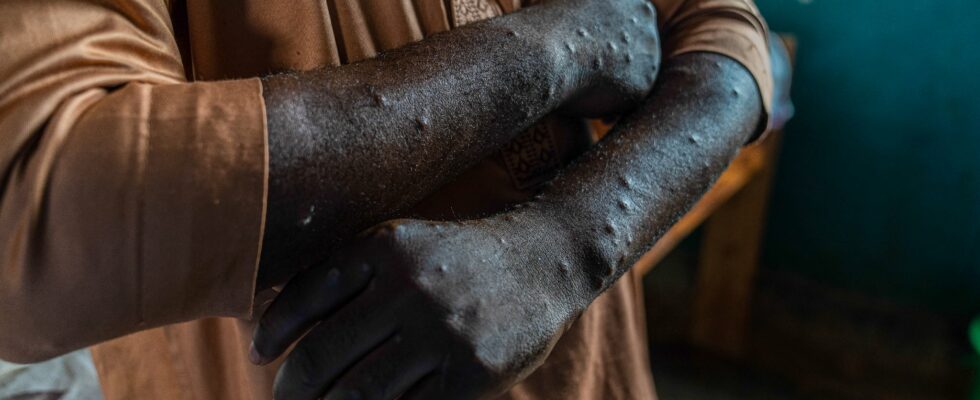The WHO has given the green light to the first in vitro diagnostic (IVD) for mpox, which should make it possible to better fight the current epidemic, according to a press release from the organization on Friday October 4. “Early diagnosis of mpox allows rapid treatment and care, as well as control of the virus,” underlines the press release, while the disease has already caused nearly 900 deaths in Africa since the start of the year.
By putting it on its emergency use list, the WHO allows other UN agencies to distribute it, and assures the health authorities of affected countries of its effectiveness and therefore helps accelerate its dissemination. . “In Africa, testing capacities are limited and delays in confirming cases of mpox persist, contributing to the continued spread of the virus,” explains the World Health Organization.
Mpox, previously called monkeypox, is a viral disease that spreads from animals to humans but is also transmitted between humans, causing fever, muscle pain and skin lesions. In 2024, more than 30,000 suspected cases have been reported in Africa, with the highest numbers in the Democratic Republic of Congo, Burundi and Nigeria. In the Democratic Republic of Congo, only 37% of suspected cases have been tested this year.
A real-time PCR test
The test approved by the WHO – the Alinity mMPXV manufactured by Abbott Molecular laboratories – is a real-time PCR test which can detect the DNA of the virus, both clade (variant) 1 and clade 2 to from human skin lesion swabs. Like the PCR tests, which punctuated the lives of millions of people at the height of the Covid-19 pandemic, it must be used by laboratory technicians.
By detecting DNA from samples of pustular or vesicular eruptions, laboratories and healthcare professionals can confirm suspected cases of mpox effectively and efficiently. “This first mpox diagnostic test listed under the emergency use procedure represents an important step in expanding the availability of tests in affected countries,” said Yukiko Nakatani, deputy director general of the WHO for access to medicines and health products. “Improving access to quality medical products is at the heart of our efforts to help countries contain the spread of the virus and protect their populations, particularly in underserved regions,” she said. added.
